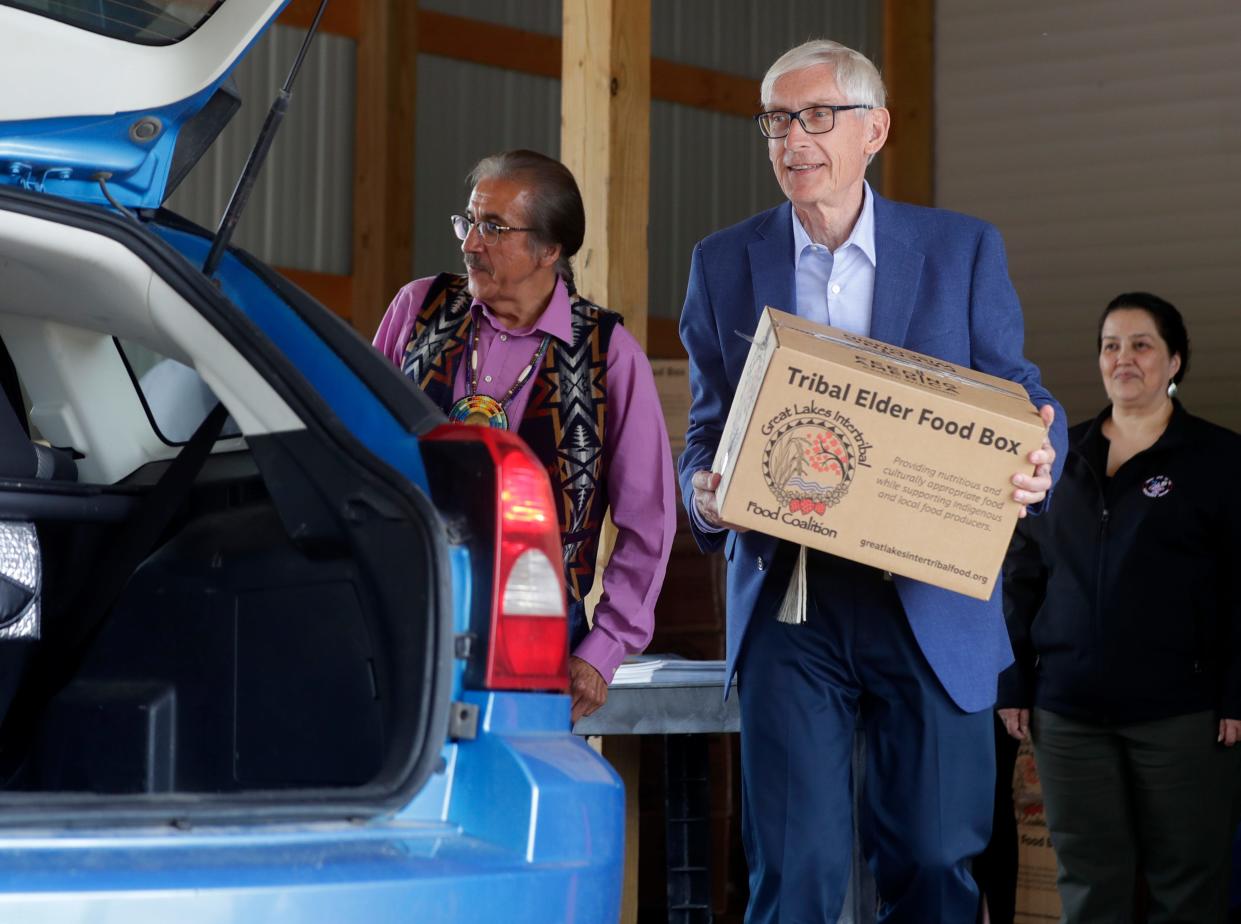'It works': State to extend funding for tribal food sovereignty program

- Oops!Something went wrong.Please try again later.
KESHENA – Despite partisan budget battles this year, a program to provide traditional Indigenous foods to tribal elders will continue with state support, Gov. Tony Evers announced this week.
“(Legislators) realized it’s important and it works,” Evers said during a visit to the Menominee Reservation on Thursday. “And the money’s available through tribal gaming revenue.”
The Tribal Elder Food Box Program started in 2021 through a partnership with Feeding Wisconsin, the Intertribal Agriculture Council and three tribal nations in Wisconsin: Oneida, Menominee and Red Cliff Ojibwe.
It has since expanded to all 11 federally recognized tribes in the state, but funding was set to run out this year.
Evers proposed $2 million a year for the next two years for the program for a total of $4 million. The Joint Finance Committee approved a total of $3 million for the program, or $1.5 million a year.
That funding means more than 32,000 food boxes can be provided to tribal elders in the state this year, said Gary Besaw, director for the Menominee Nation’s Department of Agriculture and Food Systems.
The program focuses on revitalizing traditional Indigenous foods that can’t usually be bought in grocery stores.
Foods include white corn and bison meat from Oneida, maple syrup and aquaponics greens from Potawatomi, Ojibwe wild rice and wild-caught fish from Lake Superior from the tribally-owned Red Cliff Fish Company.
The program also helps local growers buy the equipment they need to set up to grow more Indigenous crops.
“We want to support Native and non-Native farmers that are doing that sustainable farming,” Besaw said.
Chef Francisco Alegria, who prepares meals for the food boxes, said some Native foods being reintroduced might take some getting used to by tribal members, such as milkweed and certain edible flowers or types of fish.
“We’re slowly introducing these into the community,” Alegria said. “Every once in a while, we try to make it a little uncomfortable, so there’s progress.”
Some of his latest creations include wild rice horchata, tres leches blue corn cake and spring wild rice salad with milkweed.
Organizers said the program can help address health issues from poor diets in Indian Country, such as high blood pressure and diabetes.
Heart disease and cancer each caused 20% of Indigenous deaths in Wisconsin, according to the Wisconsin Department of Health Services.
Indigenous people in Wisconsin are also three times more likely to die from diabetes than the white population, according to the state agency.
Food sovereignty has long been a goal in Indian Country ever since the U.S. government forced Native American tribes onto reservations in places considered poor for farming in the 1800s.
Evers said programs like the tribal elder food box program can start to help to make up for some of those past injustices.
“We’re not going to make up for everything that happened for centuries, but we’re going to do everything we can,” he said. “We’re making strides, but we have a long way to go.”
Frank Vaisvilas is a former Report for America corps member who covers Native American issues in Wisconsin based at the Milwaukee Journal Sentinel. Contact him at fvaisvilas@gannett.com or 815-260-2262. Follow him on Twitter at @vaisvilas_frank.
This article originally appeared on Milwaukee Journal Sentinel: Gov. Evers set to approve $3 million for tribal food sovereignty

